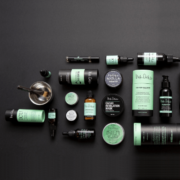 If your skin reacts to chemicals found in common household products, cosmetics, laundry detergents and even perfumes, then you may have sensitive skin.
If your skin reacts to chemicals found in common household products, cosmetics, laundry detergents and even perfumes, then you may have sensitive skin.
According to a study conducted by NCBI, the US National Library of Medicine National Institute of Health, nearly 50% of subjects studied were declared to have sensitive skin.
With that number higher among women than men, many dermatologists concentrate on efforts in treating this condition.
Though many people claim to have sensitive skin, not all actually do. According to Dr. Elizabeth Tanzi, co-director of the Washington Institute of Dermatologic Laser Surgery, the case for claiming sensitivity may be due to the overuse of products rather than the actual product.
“People may be overusing their products, leading to irritation,” says the specialist.
So how exactly is sensitive skin determined?
It’s simple.
In this article, we will discover the causes and some helpful tips on finding the right balance for those with a delicate complexion.
What Are The Causes Of Sensitive Skin?
The Skin has a natural moisture barrier that helps block out irritants that typically cause flushing (rosace), itching, redness and dryness.
When that barrier is compromised, the skin will flare up- sometimes in the form of rashes, bumps, pustules and skin erosions.
Tips for healthy skin: 3 ways to get rid of razor bumps on legs.
There are many factors that cause sensitive skin, which include
- The environment changes with the seasons, becoming very dry during cold months leading to mild to severe sensitivity. Switching between indoor heating and frigid outdoor air can also make symptoms worse. Chlorine in swimming pools can create more sensitivity, as well. Combined with not using SPF protection when out in the sun can additionally create problematic skin.
- Cleansers may also be full of chemicals that your body probably doesn’t agree with. It is not only synthetic chemicals that are sometimes the culprit, but organic and natural as well, as they may cause an allergic reaction. Over cleansing can also strip away your skin’s natural moisture barrier, making it more susceptible to irritations.
- Diet plays a major role in how your skin looks. Our skin is the largest organ of the body and it’s important that we receive proper fluid intake and nutrients to give its best glow. Sometimes allergies to certain food can too cause flare-ups.
- Stress is a major factor that not only affects how we feel but also affects our physical appearance. Stress is caused by many factors and when it arrives, our body can’t produce as many cells as usual, causing the skin to look aged and lackluster.
What Are The Signs Of Sensitive Skin?
In order to create a skin care routine for sensitive skin, then you’ll need to understand the signs. While one might get mild irritation every now and then, another can experience severe outbreaks. However, all sensitive skin has triggers-something that causes itching and redness. These triggers often come from detergents, harsh soaps, dyes, fragrance and many other culprits.
At any rate, if you experience any level of sensitivity, then it may be time to make a switch or book an appointment at your dermatologist office to find the cause. The signs of sensitive skin include
- Itching can show up anywhere can be caused by a product that you are using. Excessive scratching can make symptoms worse.
- Redness is caused when red blood vessels dilate. Typically redness will disappear when the problem causing it is removed. Sometimes laser treatments are required to get rid of severe redness.
- Stinging or burning occurs when a product is too strong. Products that contain alcohol, gels and anti-aging properties carry ingredients that are too harsh for sensitive skin.
- Dryness is caused by the lack of hydration in the skin. When dryness occurs, there is also a lack of protective nerve endings in the skin. As a result, skin can become irritated.
How Can Sensitive Skin Be Treated?
There are a variety of treatments for sensitive skin. Since this skin type tends to be highly effected by outside factors, the main goal should be to calm the skin.
If you have dry skin, avoid ingredients containing sulfates and harsh soaps. Instead, opt for products that contain aloe or cucumber extract. Simply splashing your face with water in the morning and following up with a SPF-containing moisturizer is another great option.
A facial wash should never burn and sting. If so, you are using the wrong product. Use those that contain niacin or peptides to quell irritation.
If you suffer from redness or rosacea, then you won’t want to aggravate the blood vessels within the skin. Use an SPF sunscreen and products containing calming nutrients, such as feverfew. Avoid stimulating products that contain peppermint, rosemary or eucalyptus oil, which can make conditions worse.
Conclusion
Sensitive skin can be aggravated by a variety of factors. You don’t have to suffer in silence. Finding the perfect balance of skin care to remedy sensitivity will get you on the right path to the healthy skin that you’ve always wanted.












